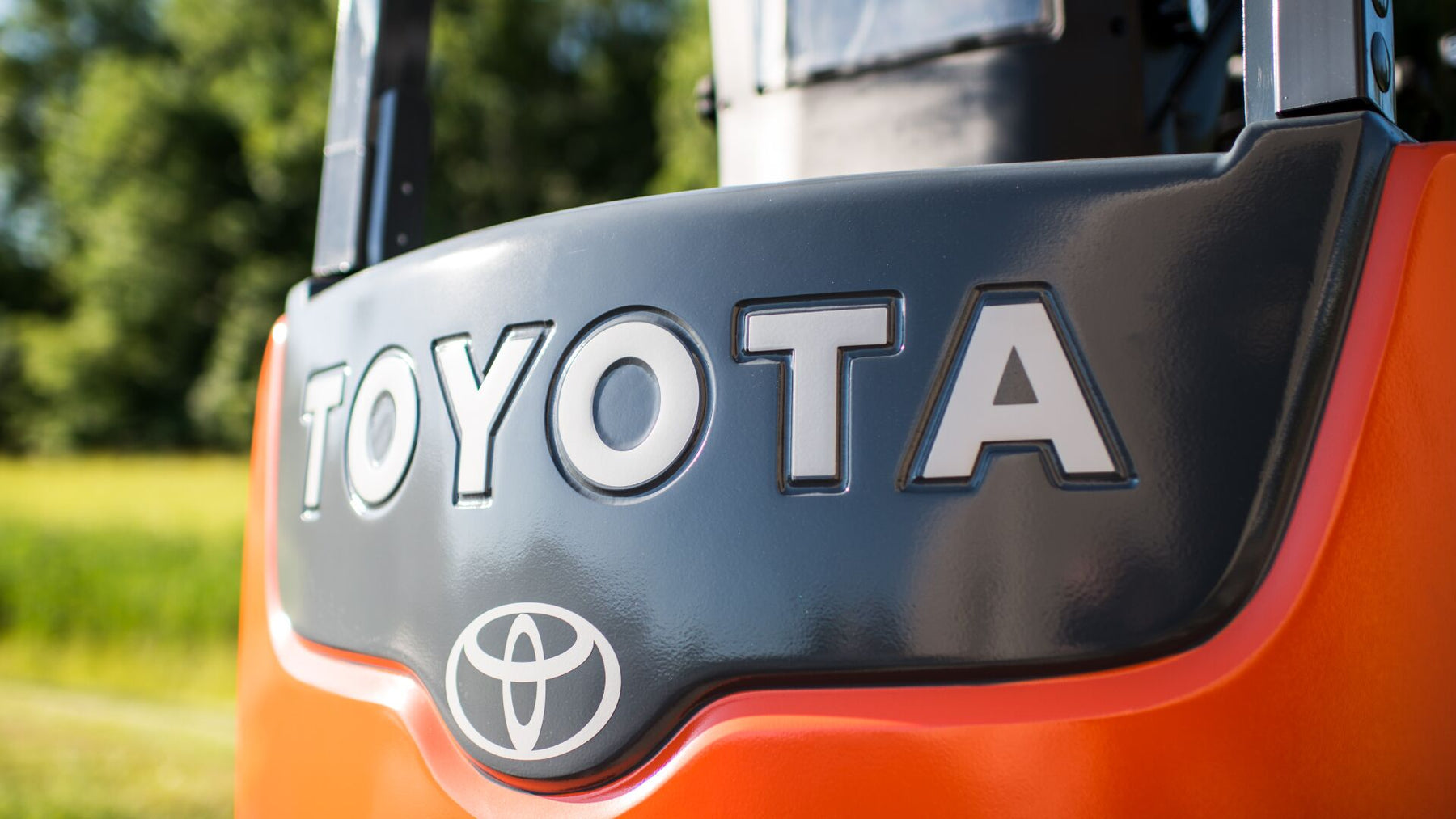
Toyota’s Environmental Focus
The Toyota organization is proud of its commitment to environmentally responsible manufacturing, and as focused as we are on environmental stewardship, we know we can always be doing more. With each passing year, we look for new ways to reduce waste and decrease our carbon footprint, and we look for new ways to live up to the corporate doctrine of The Toyota Industries Corporation (TICO). Commitment to this doctrine is unmatched in the forklift industry, and it’s why Toyota remains the first and only lift truck manufacturer to offer UL-listed, EPA and CARB-certified Compressed Natural Gas (CNG) powered forklifts. Our corporate environmental policies are built around these three principles:
- Toyota will conduct corporate activities that are considerate of the environment and the development of clean and safe products.
- We advance corporate activities that support environmental protection.
- Promote social contribution, information disclosure, and education regarding environmental protection.
Do you maintain a commitment to waste and carbon reduction in your own workplace? When you’re ready to take your organization to the next level, follow the Toyota example and consider these moves:
- Start a recycling program in your workplace if you don’t have one already. Take a baseline measurement of your current output to landfills, and set a measurable goal to reduce that number.
- Adjust the temperature in your workplace. Just a few degrees warmer in summer and cooler in winter can add up to major contributions and energy cost savings.
- Minimize manufacturing waste, and for waste that can’t be reduced, research waste to energy facilities in your area and explore the option for your facility. Recycle used oil.
- Increase your use of alternative fuel forklifts, or those that rely on propane gas. Propane is safe, economical, clean burning and nontoxic.
- Encourage employee carpooling.
- Most important, follow Toyota’s example and conduct an environmental audit each year to track your progress toward your goals. Meanwhile, every time you make a company decision, choose a vendor, invest in new equipment or move to a new facility, perform a complete environmental accounting process and factor your clean energy goals into the equation.

